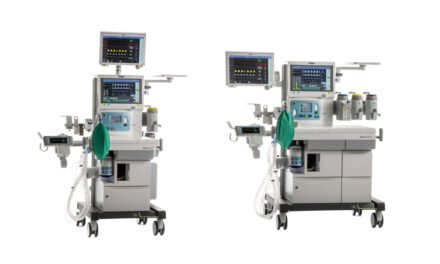The US Food and Drug Administration has granted De Novo clearance for Masimo Opioid Halo, a monitoring device intended to recognize and respond by a series of escalating notifications when an individual may be experiencing opioid-induced respiratory depression due to opioid use or overdose.
The De Novo authorizes Opioid Halo to be made available over the counter without a prescription for adults and children age 15 and older and an Rx version for use by prescription from a healthcare provider.
“We are very excited to be able to offer this solution to our fellow Americans and the community heroes who are helping to battle the opioid crisis, a crisis so devastating in its impact on the young that it has lowered overall life expectancy in the US,” says Joe Kiani, founder and CEO of Masimo, the maker of the device, in a press release. “Now, with Opioid Halo, we hope to help make a big difference by providing a much-needed tool that can help millions, whether they are taking prescribed opioids or struggling with illicit opioid use.”
Masimo Opioid Halo is designed to help family and friends identify the symptoms of an opioid overdose by detecting physiological markers present during opioid-induced respiratory depression and, ideally, helping them know when it’s time to intervene—for example, by administering a potentially life-saving dose of naloxone. Opioid Halo can be used at home or in the hospital or another care setting by patients prescribed opioids after surgery or managing a chronic or prolonged condition, as well as people suffering from opioid use disorder.
The Opioid Halo system consists of four components: a tetherless, adhesive fingertip sensor; a reusable pulse oximeter and Bluetooth chip; a Bluetooth-to-Wi-Fi Masimo Home Medical Hub; and a smartphone app. The fingertip sensor provides real-time monitoring for opioid-induced respiratory depression, enabled by the Opioid Halo pattern recognition algorithm and Masimo SET, Signal Extraction Technology—even during movement, when hands are cold, and on all skin pigmentations.
Data from the sensor and chip are wirelessly relayed to the Masimo Home Medical Hub and the smartphone app, which continuously analyzes the user’s physiological data for trends and patterns associated with the physiology of an opioid-induced respiratory depression event to quantify the risk of an opioid overdose.
As the level of risk rises, the app and hub provide alerts. Upon early onset, an audible and visual alarm, designed to trigger early intervention opportunities for the user to self-recover or get help, is provided. If the Opioid Halo risk score continues to worsen, in addition to the repeated alarms, automatic texts are sent to designated friends and family members, letting them know it may be time to intervene.
Finally, if the severity of the risk level progresses even further, there is an optional setting that can be activated during setup that enables a service center to place an automatic wellness call to the user, the outcome of which may lead to EMS being dispatched.
“Painkillers, often called ‘opioids,’ can have negative side effects, including opioid-induced respiratory depression,” says Kim Bennion, MsHS, RRT, CHC, FAARC, system director of research for respiratory care clinical services at Intermountain Health, in a press release. “Intermountain Health has demonstrated that home monitoring of post-surgical patients receiving opioids for pain can help identify issues earlier and avoid adverse outcomes. As a registered respiratory therapist and leader in the field of opioid-induced respiratory depression in the post-surgical setting, we are excited that Masimo’s breakthrough device will be available for our patients.”
Ryan Hampton, an advocate, author, and person in recovery, says, “Joe Kiani and his team at Masimo are strong advocates for solutions to help end the overdose crisis. Opioid Halo is another breakthrough innovation that can help save lives by adding to the critical support tools for people who use drugs.”
With the De Novo, Masimo also becomes the first winner of an FDA Opioid Innovation Challenge to have an authorized solution designed to help solve the US opioid crisis.
Photo caption: Masimo Opioid Halo
Photo credit: Business Wire










